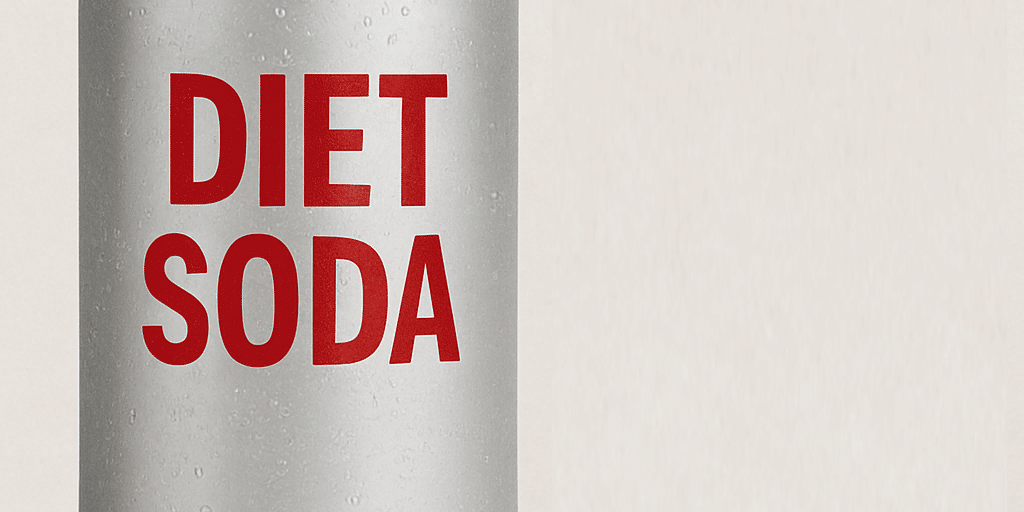A major new study has found that drinking just one can of diet soda a day may raise your risk of developing type 2 diabetes by 38%. Surprisingly, this is a greater risk than what’s seen with regular sugary sodas.
The study, led by researchers at Monash University, followed more than 36,000 adults aged 40 to 69 over nearly 14 years. It’s the first long-term research to directly compare the effects of artificially sweetened beverages (ASBs) and sugar-sweetened beverages (SSBs) on diabetes risk.
While sugary drinks were also linked to an increased risk of type 2 diabetes (23%), that connection weakened when researchers adjusted for obesity and waist size. This suggests that weight gain may explain much of the diabetes risk from sugar-sweetened drinks.
However, the risk from diet sodas stayed high even after accounting for weight, hinting at other health effects beyond just obesity. Researchers believe artificial sweeteners may disrupt gut bacteria or interfere with how the body handles sugar, possibly leading to glucose intolerance, a known warning sign for diabetes.
The study didn’t single out specific sweeteners, but common ones include aspartame, sucralose, and saccharin—which have previously been linked to gut microbiome changes and insulin response issues.
Experts say these findings challenge the idea that diet drinks are a safe alternative. “They’re often marketed as healthier,” said senior author Professor Barbora de Courten, “but our results suggest they may have their own risks.”
Researchers call for public health policies to address not just sugary drinks but also artificially sweetened beverages, as both may impact long-term metabolic health.
The full study is published in Diabetes & Metabolism.
This page is also available in:
![]() English
English


